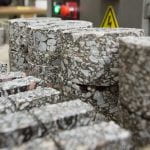Changing the World
Bridges, buildings, roads, dams, sidewalks— concrete is the world’s most widely used man-made material. And its main ingredient is cement. However, cement-based materials have qualities that demonstrate reduced durability. And the production of cement is a significant source of carbon dioxide emissions.
This is where our lab comes in. We create higher-performing cements.
Using nanotechnology and nano-engineering, we are improving cement’s fundamental properties. With new cement composites, we can build safer, more dependable roads, bridges and buildings. We can lower repair and replacement costs. We can repurpose industrial by-products. We can minimize waste and carbon dioxide emissions. We might even help by restoring the coral reefs.
Advanced Nano Cement Laboratory
The Advanced Nano & Cement Laboratory (ANCL) is at the forefront of construction materials science research and applications.
Our many successes include:
- applying nanoadmixtures and nanotechnology to cement and concrete
- developing smart stress-sensing materials
- developing superhydrophobic materials
- designing construction materials with photocatalytic and photovoltaic properties
- inventing lightweight “bone” cement for coral reef restoration
- implementing mechano-chemical activation for eco-friendly and high-performance cement
- discovering innovative methods for using waste materials.
Impact
We are engineering new materials and technologies for future construction. These cement composites and concrete materials are stronger, more durable, more sustainable, and better performing.
For example, when we partially replace portland cement with fly ash and nanoparticles (which are smaller than 100 nanometers in diameter), introduce advanced chemical admixtures, the resulting concrete is stronger, more durable and can withstand harsher environments; in addition, such concrete is eco-friendly and can be manufactured at a reduced cost.



